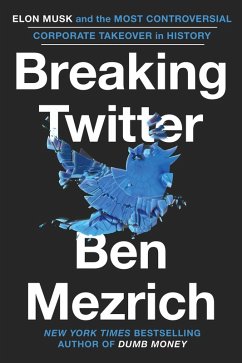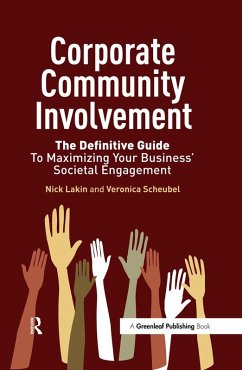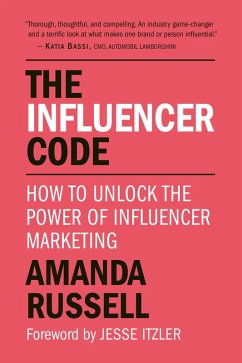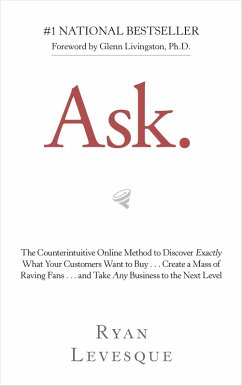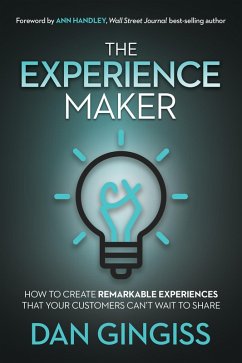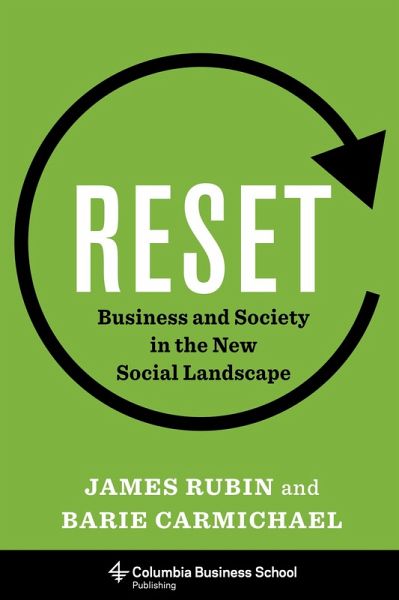
Reset (eBook, ePUB)
Business and Society in the New Social Landscape

PAYBACK Punkte
8 °P sammeln!
As consumers, our access to-and appetite for-information about what and how we buy continues to grow. Powered by social media, increasingly we look at the companies behind the products and are disappointed when their actions do not meet our expectations. With engaged citizens acting as 24/7 auditors of corporate behavior, one formerly trusted company after another has had their business disrupted with astonishing velocity in the wake of what, in the past, might have been written off as a bad media cycle. Gone are the days when a company could hide behind "socially responsible" branding or when...
As consumers, our access to-and appetite for-information about what and how we buy continues to grow. Powered by social media, increasingly we look at the companies behind the products and are disappointed when their actions do not meet our expectations. With engaged citizens acting as 24/7 auditors of corporate behavior, one formerly trusted company after another has had their business disrupted with astonishing velocity in the wake of what, in the past, might have been written off as a bad media cycle. Gone are the days when a company could hide behind "socially responsible" branding or when marketing controlled the corporate narrative. That control has shifted to engaged stakeholders in the new social landscape, requiring a more radical change to company practices.
James Rubin and Barie Carmichael provide a strategic roadmap for businesses to navigate the new era, rebuild trust, and find their voice. Reset traces the global decline of trust in business at the same time that the public's expectations for business's role in society is increasing. Today, businesses must bridge this widening gap at a time when online stakeholders are committed to holding business accountable for its behavior, with unprecedented internal and external scrutiny. This requires strategic solutions anchored in a critical outside-in understanding of the stakeholder footprint of the business model. Reset offers case studies of reputations lost and found, suggesting fundamental strategies to mitigate risk and build the corporate brand. In this new era of instant transparency, corporate behavior has become the proof of corporate character for recruiting and retaining both customers and the next generation of talent. Offering essential advice for managing brand, reputation, and risk, this book is a guide to navigating the pitfalls and taking advantage of the opportunities of the reset.
James Rubin and Barie Carmichael provide a strategic roadmap for businesses to navigate the new era, rebuild trust, and find their voice. Reset traces the global decline of trust in business at the same time that the public's expectations for business's role in society is increasing. Today, businesses must bridge this widening gap at a time when online stakeholders are committed to holding business accountable for its behavior, with unprecedented internal and external scrutiny. This requires strategic solutions anchored in a critical outside-in understanding of the stakeholder footprint of the business model. Reset offers case studies of reputations lost and found, suggesting fundamental strategies to mitigate risk and build the corporate brand. In this new era of instant transparency, corporate behavior has become the proof of corporate character for recruiting and retaining both customers and the next generation of talent. Offering essential advice for managing brand, reputation, and risk, this book is a guide to navigating the pitfalls and taking advantage of the opportunities of the reset.
Dieser Download kann aus rechtlichen Gründen nur mit Rechnungsadresse in A, D ausgeliefert werden.







